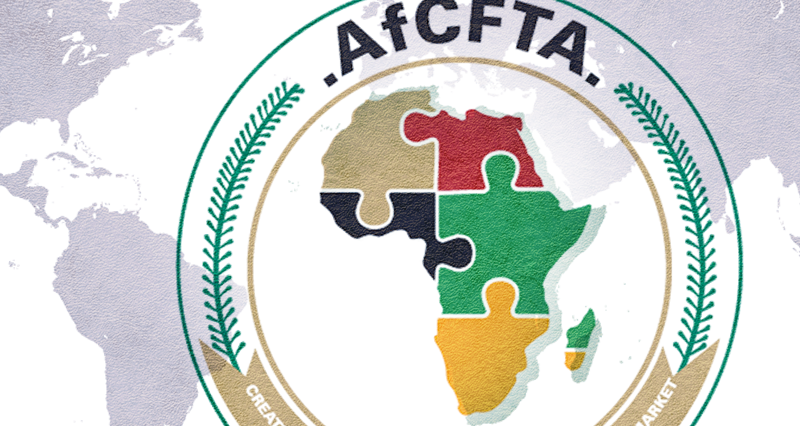In a bold move towards economic integration and prosperity, the African Continental Free Trade Area (AfCFTA) was launched in January 2021. As the largest free trade area globally, the AfCFTA encompasses 55 African nations and offers unprecedented opportunities for trade and investment within the continent. This monumental initiative promises to transform Africa’s economy, foster inclusive growth, and elevate the continent’s global relevance.

Image: www.melanoidnation.org
The AfCFTA’s primary objective is to create a single, unified market for goods and services, facilitating the free movement of capital and people within the region. By eliminating tariffs and trade barriers, the AfCFTA aims to boost intra-African trade, which currently stands at a mere 15%, far below the levels in other regions. This trade boost is crucial for stimulating economic growth, creating employment opportunities, and improving living standards across Africa.
Benefits and Opportunities
The AfCFTA holds immense benefits for businesses, consumers, and economies in Africa. Here’s an exploration of the key advantages:
Reduced Trade Barriers:
The AfCFTA’s primary goal is to eliminate tariffs and other trade barriers, simplifying the movement of goods and services across borders. This reduction in trade costs is expected to lower prices for consumers and make African products more competitive globally.
Increased Investment:
The creation of a unified market under the AfCFTA is expected to attract increased investments from both within and outside the continent. Investors will be drawn by the access to a larger market, increased profitability, and potential new investment opportunities.

Image: uwidata.com
Enhanced Economic Growth:
The AfCFTA is a catalyst for economic growth as it stimulates trade and investment. Increased economic activity across Africa drives job creation, boosts incomes, and improves living standards.
Diversification and Industrialization:
Encouraging intra-African trade allows countries to diversify their economies by trading with neighboring countries. This diversification can reduce reliance on a single industry or export, leading to more resilient economies. It also promotes regional collaboration, increasing the opportunities for industrialization and value-addition.
The AfCFTA’s impact extends beyond economic benefits. It fosters political and social integration by strengthening regional cooperation and reducing conflicts. Additionally, it enhances Africa’s negotiating power in global trade discussions, giving the continent a louder voice on the world stage.
Challenges and Implementation
While the AfCFTA offers tremendous potential, its successful implementation faces certain challenges that must be effectively addressed:
Infrastructure Gaps:
Africa’s inadequate infrastructure, including roads, railways, and energy networks, can hinder the smooth transportation of goods across borders. Addressing these gaps requires significant investments and strategic planning.
Lack of Productivity:
Low productivity levels in some African industries can make it challenging for local businesses to compete on a larger scale. Efforts to enhance productivity involve improving access to technology, training, and financing for businesses.
Non-Tariff Barriers:
Despite the reduction of tariffs, non-tariff barriers such as regulatory differences, bureaucratic hurdles, and lack of product standards still exist. These barriers can impede trade and require harmonization efforts and coordination among countries.
Effective Implementation:
The successful implementation of the AfCFTA relies heavily on effective governance, transparent regulations, and efficient dispute resolution mechanisms. Governments need to establish clear guidelines, provide technical support, and enforce regulations to ensure the agreement’s viability.
Africa Biggest Trade Zone
Conclusion
The African Continental Free Trade Area is a transformative initiative with the potential to reshape Africa’s economic landscape. Its goal of eliminating trade barriers, fostering cooperation, and promoting inclusive growth offers enormous opportunities for businesses, consumers, and the continent as a whole. Tackling the challenges related to infrastructure, productivity, and non-tariff barriers is essential for its successful implementation. The full realization of the AfCFTA’s potential will contribute to Africa’s economic resurgence, empowering the continent to take its rightful place as a global economic force.
As the AfCFTA journey unfolds, it is imperative to harness the collective wisdom and collaboration of governments, businesses, and civil society organizations. By working together, Africa can leverage this historic opportunity to unlock its economic potential, creating a brighter and more prosperous future for generations to come.






